Digital disruption inevitable, but beware of hype
The boardroom and technology leaders speaking to some 200 attendees at a Lloyd’s List Business Briefing in Oslo, during Nor-Shipping 2017, said that digitalisation will inevitably deliver change and drive the industry in a new direction but it will take much longer than many in the industry expect.
Opening the DNV GL-sponsored briefing, Knut Ørbeck-Nilssen, CEO-Maritime, DNV GL – a pioneer in digitalisation innovation – said: “The market is naturally taking its toll. Many are in survival mode.
"At the same time, the digital transformation is upon us; the question is, who is ready to ride the wave of big data, interconnectivity, cloud-based computing? Who is ready to disrupt and who will be disrupted? So these are some of the mind-boggling questions that we ask ourselves.
“If I look at one of the really high potential developments, it's what we are doing now with machine learning to really put smart algorithms in place to help speed up the responses that we are providing to our customers on technical questions,” Ørbeck-Nilssen said.
Everyone is looking for a competitive advantage and many see that moving ahead, inside the field of digitalisation, might give them a competitive advantage
Knut Ørbeck-Nilssen, CEO-Maritime, DNV GL
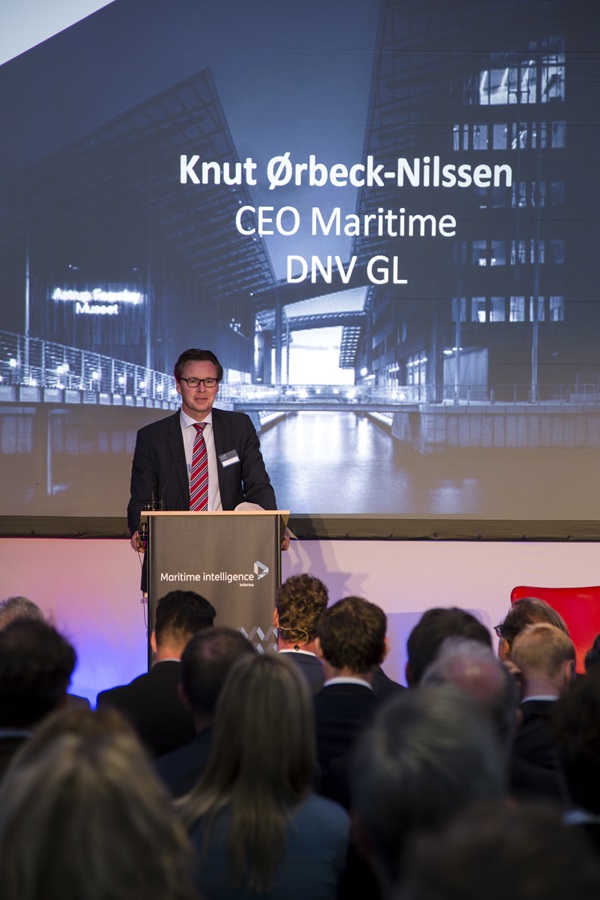
Knut Ørbeck-Nilssen, CEO-Maritime, DNV GL
CREDIT: Informa - Steffen Rikenberg
Ari Marjamaa, Chief Transformation Officer, WWL ASA, Wallenius Wilhelmsen Logistics, said: “It’s very easy to see where we want to go, kind of the other side of the river, and then it's very easy to see all the practical challenges we have here, but it's kind of hard at this time and age to see the bridge from here to there.
I think we're likely at peak digitalisation in the sense that it can't get much more
Ari Marjamaa Chief Transformation Officer, WWL ASA, Wallenius Wilhelmsen Logistics
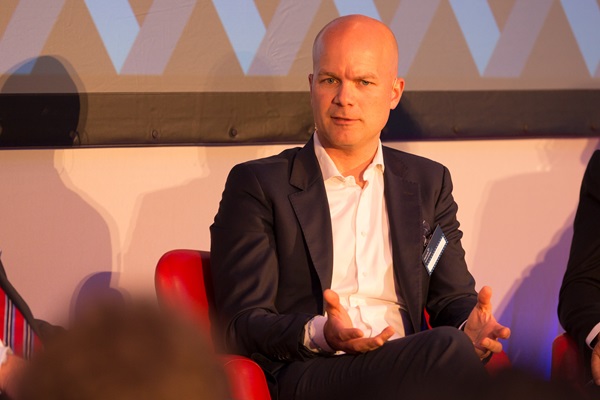
Ari Marjamaa, Chief Transformation Officer, WWL ASA, Wallenius Wilhelmsen Logistics
CREDIT: INFORMA - STEFFEN RIKENBERG
"There is a lot of dust in the air at the moment, there's a lot of hype. I think we're likely at peak digitalisation in the sense that it can't get much more; the balloon is pretty expanded at this point in time. That being said, I think – and your example, Knut is great – there is massive potential, but we certainly have to navigate our way and find the next stone to cross this river.
“I am a little bit worried about companies fearing that everyone else is doing a lot and going off and making big investments and thinks that might be a little bit rash, particularly when it comes to blockchain and other technologies that I think are important from a supply chain basis, meaning that we actually need to interact with each other.
I think it's important that we collaborate, that we actually talk together and that we don’t compete on having the best and the biggest and the shiniest. That won't take us to where we want to go,” Marjamaa said.
Andrea Zito, Group Director, Technical V.Group, said: “I think digitalisation is impacting us the same as automation impacted us. The important thing is not data, it is the Connected Ship because we have the data on board. We all think when we talk about digitalisation, we talk about the cruise vessels, the offshore where the pipelines are huge in communication, we have (some) 60,000 bulk carriers, tankers where you have 20 people on board and very little connection.
I don’t see the autonomous vessel being replicable for the 60,000 seagoing vessels around the world, so we will still have the human element on board
Andrea Zito, Group Director, Technical V.Group
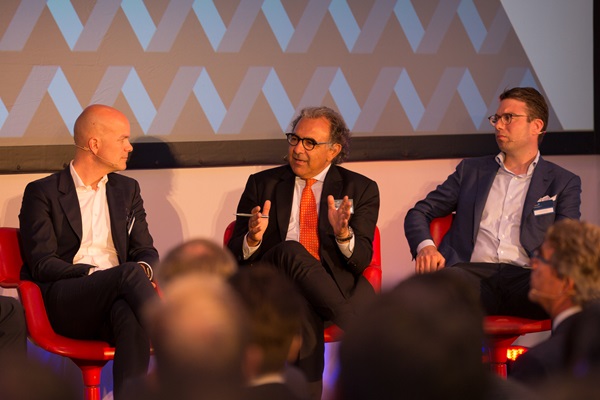
Andrea Zito, Group Director, Technical V.Group (centre)
CREDIT: INFORMA - STEFFEN RIKENBERG
“Two years ago we made a survey; out of the 1,000 ships we manage only 40% were connected decently to get decent use of data. Now it's increasing, the communication price is going down and this is the important thing, and together with this I think – like automation – that common sense has to prevail. We will still have human beings on board because I – and I try to be a little bit provocative here – I don’t see the autonomous vessel being replicable for the 60,000 seagoing vessels around the world, so we will still have the human element on board.
“The important thing that a lot of people do not take, is we need to translate this data with algorithm for decision support system for the people onboard and ashore, because without this automatic algorithm that are translating the data in decision support systems for the people who manage the vessel, we will fail,” Zito said.
Prominent Danish banker, Christopher Rex, Director of Research, Danish Ship Finance, said digitalisation must be seen against the bigger backdrop of the 4th Industrial Revolution.
As a banker we have to pick the right winners of tomorrow because there will be a lot of struggles in the next few years, it might not even turn in 12 months, 18 months
Christopher Rex, Director of Research, Danish Ship Finance
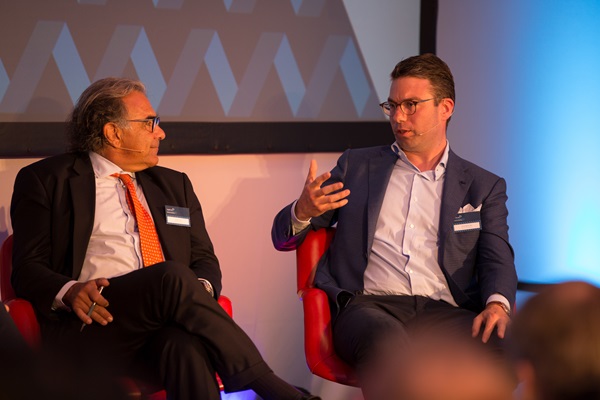
Christopher Rex, Director of Research, Danish Ship Finance (right)
CREDIT: INFORMA - STEFFEN RIKENBERG
“The 4.0 is not necessarily only about autonomous or digitalisation or whatever we would like to call it, to my understanding we have a more fundamental change going on here. On the one hand, we have an aging consumer base in the OECD that basically means that all global consumers are about to retire. This is not to say they will not continue to spend, but our spending behaviour will change towards services that are not seaborne driven.
“So that basically means that we are about to see global trade volume stagnating. And now we come back to the combinatorial effects of the 4th Industrial Revolution, because why I think that the 4.0 is more than just…. about autonomous, this is about we may not necessarily need the same amount of fossil fuels in the future, so instead of having unarmed drilling rigs, this is much more about looking into the effects we have seen with renewable energies.
“Today we can see that both solar and wind energy are competitive on a non-subsidy basis in most of the sunny parts of the global economy, in particular in southeast Asia. This is a place that matters the most because this is the place where everybody is investing in new ships, hoping that the future demands will come from due to population growth, so when these regions (to which) we are basically about to provide electricity at a grid parity level with fossil fuels – but on a smaller investment level with a quicker repayment period – this is a very significant change in energy outlook, both for the energy sector of course, but in particular also for the shipping sector.
“So, basically what we're saying is that in most of all ship segments we should not expect to see major increases in demand for the next 15 years plus, something like that, so this goes basically much more beyond all the things we are seeing in digitalisation in our business model.
“This basically means that as a banker at least…. we have to pick the right winners of tomorrow because there will be a lot of struggles in the next few years, it might not even turn in 12 months, 18 months, whatever. But of course shipping will still need ships and we will still need fossil fuels, but the growth in these commodities is much less than what have seen in the past, so we need to adapt to a new situation,” Rex said.
“I think we already are there, we are talking about digitalisation every day and the industry have done it for many years,” said John Taxgaard, VP Global Maritime Services, Ericsson. “When we move into customer engagement, they are already well aware what they really want to do with the technologies that they have available right now.
It’s not about making the internet smarter or the shipping smarter. It’s more how can I make the human smarter to use the technologies
John Taxgaard, VP Global Maritime Services, Ericsson
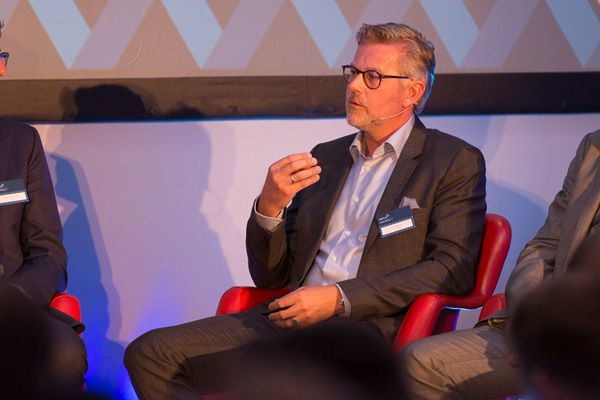
CREDIT: INFORMA - STEFFEN RIKENBERG
“What is the problem is…. what about the future? What about building some kind of a bridge from where we are today to be where we really want, but nobody really knows the technology in 12, 18, 24 months.
“When we discuss digitalisation technology with our customers, it is more about really understanding to build a trust relationship and do it in an actual way of working and an actual partnership where you develop, based on the technology that is available on the market.
“The engagement that we are doing as well is together with partners, we can’t do this alone. We are from a different industry; we are coming from IT Telco. What we are doing is that we have a lot of experience from other industries. We try to take all these great experiences and knowledge from other industries, bring it in to the maritime, not only shipping. I think we have too much focus on only shipping, it’s about maritime. It’s about the whole logistics chain to be connected together.
“Also, how do you change the behaviour of humans because it’s you and me that needs to work with the new and latest technologies. So, it’s not about making the internet smarter or the shipping smarter, I think it’s more, how can I make the human smarter to use the technologies,” Taxgaard said.
Thorsten Meincke, SVP Global Seafreight, Kuehne + Nagel, said:
“What I see changing now is technology…. but it’s not happening enough; there’s sometimes a big step you are making. When a big step is happening, it needs somehow a wake up and this wake up in the past was always done mainly by a consultant and by media.
“What is changing now is, instead of consultants and media picking up, what I see is that B2B.com companies are hyping here and they are hyping much more and this is probably what is concerning us.
“We see in most companies and people working, not coming from the industry, but seeing it’s a big market so let’s go in and make some big money in there, and then there are investors – even more far away from our industry – believing stories and hearing stories (who) within an hour then decide if they invest or not.
What I see is that B2B.com companies are hyping
Thorsten Meincke, SVP Global Seafreight, Kuehne + Nagel
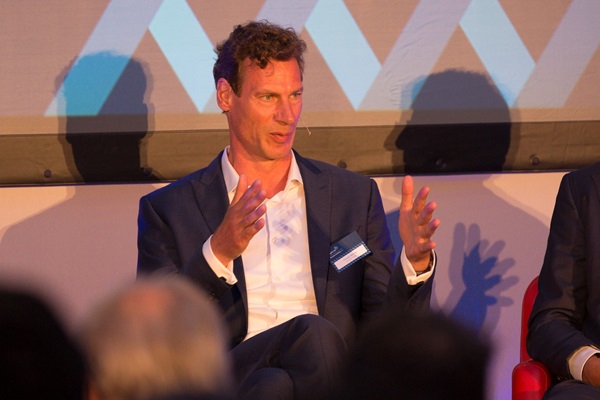
CREDIT: INFORMA - STEFFEN RIKENBERG
Knut Ørbeck-Nilssen said: “I would say that from the conversations that I'm having with a lot of the top executives in shipping companies and yards and manufacturers is that they see a lot of potential in the broad term of digitalisation and my impression is that these days everyone is looking for a competitive advantage and many see that moving ahead, inside the field of digitalisation, might give them a competitive advantage in an otherwise very competitive environment.

